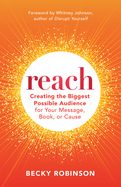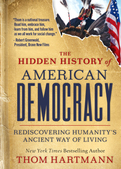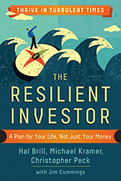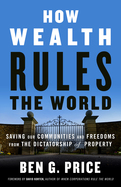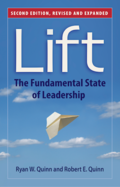Search Results: "Social Venture Networks/books/marketing-that-matters.htm"
Results 169-174 of 345
Reach
2022
Cut through the noise and create the biggest possible audience for your work. This book offers a proven method for expanding your reach online so you can make a meaningful difference for others.
Anyone who makes the bold decision to put their ideas out into the world wants to reach as many people as possible. Unfortunately, too many think it's a question of numbers-the more people you can get in front of, the better. But true reach is about expanding your audience while making a meaningful and enduring difference that has a lasting impact.
Reach provides a clear and structured approach to creating a successful online presence that will create the biggest possible impact for any message. Becky Robinson shares a framework to cultivate followers that requires four commitments: value, consistency, endurance, and generosity. When you make these four commitments, you'll deliver memorable content on a regular basis while keeping the long-term view in mind and being committed to helping and sharing with others.
Robinson offers guidance on having realistic expectations and meaningful goals, encouraging readers to reflect on what they want to accomplish and with whom they want to connect. Readers will also learn how to overcome discouragements, create and repurpose content, and focus on the everyday activities that will spread ideas.
This is a long-term process-one that doesn't normally offer immediate results or guarantee the desired outcome. But, as Robinson reminds us, creating from a place of generosity can lead to benefits greater than you can imagine.
Anyone who makes the bold decision to put their ideas out into the world wants to reach as many people as possible. Unfortunately, too many think it's a question of numbers-the more people you can get in front of, the better. But true reach is about expanding your audience while making a meaningful and enduring difference that has a lasting impact.
Reach provides a clear and structured approach to creating a successful online presence that will create the biggest possible impact for any message. Becky Robinson shares a framework to cultivate followers that requires four commitments: value, consistency, endurance, and generosity. When you make these four commitments, you'll deliver memorable content on a regular basis while keeping the long-term view in mind and being committed to helping and sharing with others.
Robinson offers guidance on having realistic expectations and meaningful goals, encouraging readers to reflect on what they want to accomplish and with whom they want to connect. Readers will also learn how to overcome discouragements, create and repurpose content, and focus on the everyday activities that will spread ideas.
This is a long-term process-one that doesn't normally offer immediate results or guarantee the desired outcome. But, as Robinson reminds us, creating from a place of generosity can lead to benefits greater than you can imagine.
America's most popular progressive radio host and New York Times bestselling author Thom Hartmann paves the way to saving our democracy.
In this powerful, sweeping history and analysis of American democracy, Thom Hartmann shows how democracy is the one form of governance most likely to produce peace and happiness among people.
With the violent exception of the Civil War, American democracy resisted the pressure to disintegrate into factionalism for nearly two centuries, and now our very system of democratic elections is at stake. So how do we save our democracy?
Hartmann's newest book in the celebrated Hidden History Series offers a clear call to action and a set of solutions with road maps for individuals and communities to follow to create a safer, more just society and a more equitable and prosperous economy.
In this powerful, sweeping history and analysis of American democracy, Thom Hartmann shows how democracy is the one form of governance most likely to produce peace and happiness among people.
With the violent exception of the Civil War, American democracy resisted the pressure to disintegrate into factionalism for nearly two centuries, and now our very system of democratic elections is at stake. So how do we save our democracy?
Hartmann's newest book in the celebrated Hidden History Series offers a clear call to action and a set of solutions with road maps for individuals and communities to follow to create a safer, more just society and a more equitable and prosperous economy.
If you want to build a better life and a better world—and really be prepared for any possible future in these turbulent times—you need to become a resilient investor! This trailblazing guide will expand your ideas of investing way beyond Wall Street. Your time, your energy, and the things you own are investments too, and you'll learn to diversify them in ways that move you toward your life goals.
The Resilient Investment Map lays out all your assets—personal and physical as well as financial—and then provides three essential, timely strategies (Close to Home, Sustainable Global Economy, and Evolutionary Investing) that will help you grow each of them. The goal is to become more resilient: able to anticipate disturbance, rebuild as necessary, and improve when possible. You'll discover that the choices making you more resilient also enhance our communities, our economy, and the planet—building real wealth for all.
The Resilient Investment Map lays out all your assets—personal and physical as well as financial—and then provides three essential, timely strategies (Close to Home, Sustainable Global Economy, and Evolutionary Investing) that will help you grow each of them. The goal is to become more resilient: able to anticipate disturbance, rebuild as necessary, and improve when possible. You'll discover that the choices making you more resilient also enhance our communities, our economy, and the planet—building real wealth for all.
Crackdowns on local democracy are accelerating, as corporate and state interests continue efforts to repress social movements. In this well-timed book, Ben Price presciently reveals structures of power and law that facilitate blatant corporate supremacy in the United States. Price uses his years of experience as a community organizer and a careful reading of history to show how a legal paradigm that facilitated slavery and the fossil fuel economy has endured and adapted over time – today barricading our communities and squelching dissent.
Many books have been written about wealth, power and politics in the United States. Most of them make intuitive sense. Wealthy people use their power to influence and control politics. But Ben Price's new book is often counterintuitive as he explores how wealth itself is imbued with power. He answers questions such as:
How is the American Legislative Exchange Council – a modern states' rights, free market capitalist group – the intellectual and political descendant of George Washington's Federalist Party?
How was the Fourteenth Amendment that emancipated African American slaves from their status as property used by a reactionary Supreme Court to grant legal “personhood” to private corporations?
How are cities seen under our legal doctrine as “public corporations,” devoid of real governing authority?
Further, Price identifies key counterrevolutions in U.S. history that squelched the transformative potential of the Civil War and American Revolution, and traces the roots of colonial and imperial systems of control. He links them to modern “free trade” agreements and other antidemocratic structures used to supersede democracy to this day.
For some, this will come as no surprise. For others, it will be a rude, though necessary, awakening. “The white man's municipalities are just reservations, like ours,” said a resident of Pine Ridge Reservation, who Price spoke with. "The difference is, we know we live on reservations. The white man doesn't.”
Crucially, Price shares insight into how social movements can plant seeds of a new legal system that makes the liberty, civil rights and dignity of humans and ecosystems its ultimate purpose. In fact, he introduces the reader to people who are doing just that.
Many books have been written about wealth, power and politics in the United States. Most of them make intuitive sense. Wealthy people use their power to influence and control politics. But Ben Price's new book is often counterintuitive as he explores how wealth itself is imbued with power. He answers questions such as:
How is the American Legislative Exchange Council – a modern states' rights, free market capitalist group – the intellectual and political descendant of George Washington's Federalist Party?
How was the Fourteenth Amendment that emancipated African American slaves from their status as property used by a reactionary Supreme Court to grant legal “personhood” to private corporations?
How are cities seen under our legal doctrine as “public corporations,” devoid of real governing authority?
Further, Price identifies key counterrevolutions in U.S. history that squelched the transformative potential of the Civil War and American Revolution, and traces the roots of colonial and imperial systems of control. He links them to modern “free trade” agreements and other antidemocratic structures used to supersede democracy to this day.
For some, this will come as no surprise. For others, it will be a rude, though necessary, awakening. “The white man's municipalities are just reservations, like ours,” said a resident of Pine Ridge Reservation, who Price spoke with. "The difference is, we know we live on reservations. The white man doesn't.”
Crucially, Price shares insight into how social movements can plant seeds of a new legal system that makes the liberty, civil rights and dignity of humans and ecosystems its ultimate purpose. In fact, he introduces the reader to people who are doing just that.
Lift
2015
NEW EDITION, REVISED AND UPDATED
Harness the Science of Positive Influence
Just as the Wright Brothers combined science and practice to finally realize the dream of flight, Ryan and Robert Quinn combine research and personal experience to demonstrate how to reach a psychological state that lifts us and those around us to greater heights of achievement, integrity, openness, and empathy. The updated edition of this award-winning book—honored by Utah State University's Huntsman School of Business, Benedictine University, and the LeadershipNow web site --includes two new chapters, one describing a learning process and social media platform the Quinns created to help people experience lift and the other sharing new insights into tapping into human potential.
Harness the Science of Positive Influence
Just as the Wright Brothers combined science and practice to finally realize the dream of flight, Ryan and Robert Quinn combine research and personal experience to demonstrate how to reach a psychological state that lifts us and those around us to greater heights of achievement, integrity, openness, and empathy. The updated edition of this award-winning book—honored by Utah State University's Huntsman School of Business, Benedictine University, and the LeadershipNow web site --includes two new chapters, one describing a learning process and social media platform the Quinns created to help people experience lift and the other sharing new insights into tapping into human potential.
Social media star: In November 2013, Seth s blog post entitled œMarriage Isn t for You garnered more than 30 million hits and resulted in interviews on Good Morning America, Fox News, and media coverage around the world. Heartfelt and moving: Smith wriGive Your Life to Live Your Life
In this book, Seth Adam Smith expands on the philosophy behind his extraordinarily popular blog post “Marriage Isn't for You”—which received over 30 million hits and has been translated into over twenty languages—and shares how living for others can enrich every aspect of your life, just as it has his. With a mix of humor, candor, and compassion, he reveals how, years before his marriage, his self-obsession led to a downward spiral of addiction and depression, culminating in a suicide attempt at the age of twenty. Reflecting on the love and support he experienced in the aftermath, as well as on the lessons he learned from a difficult missionary stint in Russia, his time as a youth leader in the Arizona desert, his marriage, and even a story his father read to him as a child, he shares his deep conviction that the only way you can find your life is to give it away to others. Your Life Isn't For You was recently named the Gold Medalist for Inspirational Memoir in the 2015 Living Now Book Awards!
In this book, Seth Adam Smith expands on the philosophy behind his extraordinarily popular blog post “Marriage Isn't for You”—which received over 30 million hits and has been translated into over twenty languages—and shares how living for others can enrich every aspect of your life, just as it has his. With a mix of humor, candor, and compassion, he reveals how, years before his marriage, his self-obsession led to a downward spiral of addiction and depression, culminating in a suicide attempt at the age of twenty. Reflecting on the love and support he experienced in the aftermath, as well as on the lessons he learned from a difficult missionary stint in Russia, his time as a youth leader in the Arizona desert, his marriage, and even a story his father read to him as a child, he shares his deep conviction that the only way you can find your life is to give it away to others. Your Life Isn't For You was recently named the Gold Medalist for Inspirational Memoir in the 2015 Living Now Book Awards!


